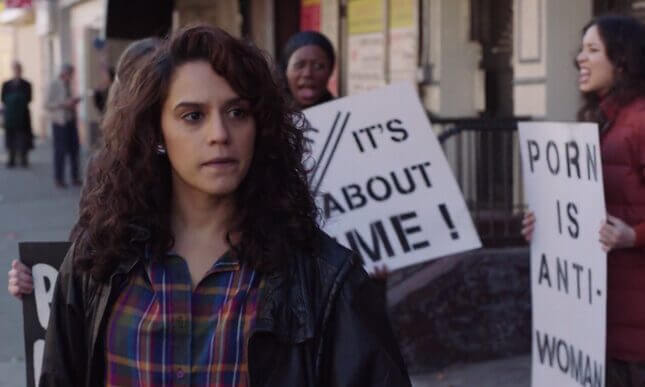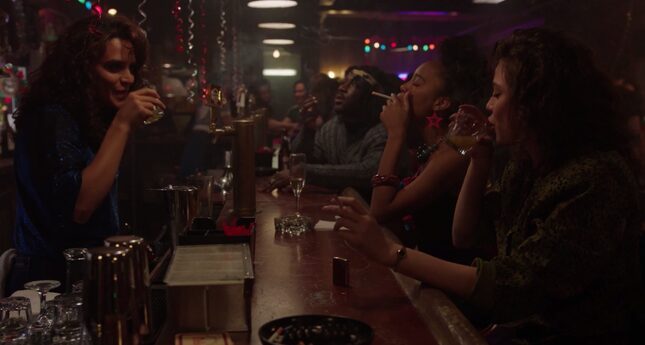

As a sweeping look at the way sex work in Times Square changed over a decade-and-a-half, HBO’s The Deuce has always had an eye towards feminism. Its first season, set in 1971, introduced Maggie Gyllenhaal’s Candy, a savvy sex worker on 42nd Street who deliberately worked alone, which is to say, without the protection or subjugation of a pimp; by Season 2, set in 1977, Candy had parlayed her ambition into a career as a proto-feminist pornographic film director, big on arthouse ideas and intent on centering the women performers. Concurrently, Season 2 wove in Second Wave thought with Abby (Margarita Levieva) and Dorothy (Jamie Neumann, who has said she read Andrea Dworkin for the role) organizing to help sex workers on the street with mobile clinics and empowerment—an idealism that would prove occasionally dangerous. As with most of the themes in The Deuce, though, in its first two seasons, feminism has been more about the cultural fabric of the plot than a central concern—a tenor that infuses the characters’ lives rather than a text from which to preach.
Spoilers ahead.
-

-

-

-

-

-

-

-

-

-

-

-

-

-

-

-

-

-

-

-

-

-

-

-

-

-

-

-

-

-

-

-

-

-

-

-

-

-

-

-









































